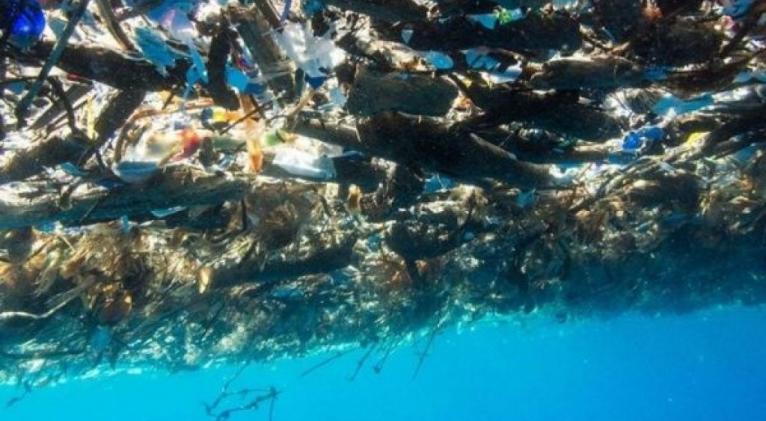Photographer Captures Story of World's Ocean Pollution Crisis
especiales

"There was a seemingly endless amount of forks, spoons, bottles and plastic plates," photographer Caroline Power said.
Underwater photographer Caroline Power captured the world’s pollution crisis in a photo series published on the deep sea diver’s Facebook page.
A resident of Roatan, an island off the northern coast of Honduras, Power showed plastic forks and spoons, styrofoam containers and plastic bags clinging to the Caribbean sea's surface around the island. One photo showed a ship plowing through a “sea of plastic and styrofoam” with at least a kilometer of litter stretching out on either side.
"There was a seemingly endless amount of forks, spoons, bottles and plastic plates, there were broken soccer balls, toothbrushes, a television and many shoes and flip-flops," Power said.
“Unbelievable,” the Blue Planet Society, an organization dedicated to water preservation and the protection of marine wildlife, commented. According to the group, the flow of pollution seems to have been carried by the Motagua river, near Guatemala, which, they say, has been a troublesome area for some time.
"We see a lot of shocking images of environmental destruction. This is right up there with the worst,” the organization said.
"As with oil spills, there should be a system in place for a rapid response clean-up for trash 'slicks' like the one off Roatan," they said. However, they admitted, that would only be a short-term solution. To remedy the current situation would require immediate action from governments, manufacturers, and retailers.
A study conducted by Roland Geyer, Jenna Jambeck, Kara Lavender Law revealed that over eight million tons of plastic is dumped into the oceans every year and predicted there will be more disposable items than fish by 2050.
“I challenge every person and every business to keep your trash for one week,” Power said. "Separate your organic and recyclables and keep everything else for one week. You will be disgusted how many single-use items you use."













Add new comment